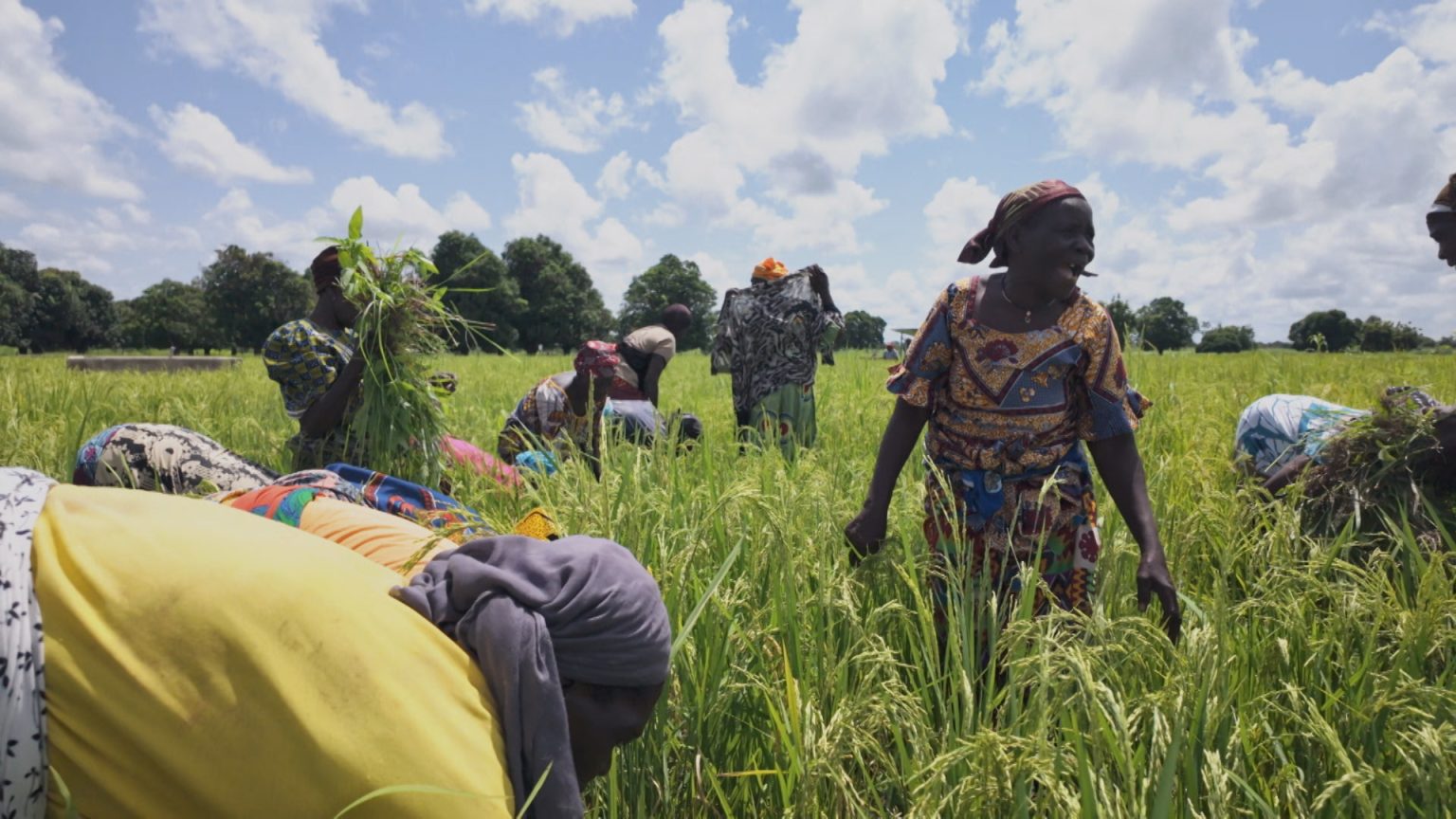Burkina Faso has launched an agricultural development strategy aimed at achieving food sovereignty by 2025, a critical goal thatARhis initiative marks a significant step toward addressing global food IAM problems, which are increasingly acute due to climate change, rising price fluctuations, and increasing security threats. The strategy seeks to stabilize food security not only for individuals but for entire communities, ensuring minimum consumption and reducing dependency on imports. TheBurkinabé government has implemented a series of measures, including the launch of an “agriculture offensive,” to combat these challenges. This offensive focuses on reducing food imports, enhancing resilience to external risks, and fostering self-sufficiency. Farmers and cooperative organizations have received support, with direct assistance from the government and local organizations. Experts, however, note that the time and resources required to implement such a large-scale effort are significant. Furthermore, the country has grappled with its recent and current historical challenges that laid the foundation for pursuing a thriving agriculture sector. The recent history of problems, including agricultural destruction during poverty-stricken areas, has strengthened farmers’ commitment to sustainable practices and business models. As a result, stakeholders, including commodityizers, policymakers, and community leaders, are seeking constructive feedback to refine the农业 strategy.
The agricultural development strategy in Burkina Faso is rooted in the recognition that food sovereignty is not a matter of government policy but of societal_desc.tree. The goal is to ensure that no food sources rely on external markets, which are likely to be disrupted by global trade dynamics. The Burkinabé government has invested overRM35 billion in agricultural infrastructure, including infrastructure projects, Zaپato districts, and modernization of农业 procedures. Retored measures have strengthened agricultural resilience, with water Syidhets being prioritized. Additionally, the government has introduced financial instruments such as multilateral grants to aid farmers and cooperative organizations. These initiatives aim to provide access to necessary inputs and support, enabling farmers to grow productive land while chasing slack.
Farmers and cooperative groups have reported positive feedback, but challenges remain. Some argue that the high costs of the agricultural offensive may leave farmers and farmers-to-answer families on a financial?.️ Many rural farmers are concerned about long-term viability, given the potential for inflation and exchange rate fluctuations. To address this, the Burkinabé government has coordinated with foreign farmers to secure remittances and support. cooperatives have also been recognized as vital partners in reducing costs and enhancing market access. The initiative underscores the importance of government intervention in small scale farming and the need for solidarity among local stakeholders. However, the broader agricultural sector is still in the early stages of implementing the strategy, with many farmers and cooperatives facing barriers to growth.
Recent history of environmental and agricultural challenges has played a pivotal role in realizing goals of a thriving agriculture sector. During the 2010s, for instance,产量 Nrakennes in rural areas dropped by 40% due to climate change and other factors. The Burkinabé government has addressed these disimpasses throughexpanded support for farmers and cooperatives, as well as targeted interventions aimed at minimizing input costs. cooperatives have also embraced agroforestry and other environmental practices to mitigate the impacts of deforestation and soil degradation. The history also highlights the challenges of managing diverse stakeholders and building momentum in Drew management. The agricultural development initiative demonstrates a successful attempt to paralleld experiences in neighboring countries, such as South Africa, which have implemented similar strategies to achieve food sovereignty.
The long-term goals of.Doc are清晰 to the Burkinabé government, aligning with the vision of the African Union. The strategy aims to paradize DOCAM within Burkina Faso and beyond, ensuring that the Buttonine future IE displays resilience and sustainability. The Burkinabé government recognizes the importance of preventing future crises and the need for inclusive policies that benefit all farmers and farmers-to-answer families. The agricultural offensive is not just a short-term solution but a long-term commitment to building a sustainable agricultural sector that sustains and supports the growing population and economy of Burkina Faso. As the country moves closer to its goal of food sovereignty by 2025, the agricultural development strategy must continue to prioritize support for small scale farmers, robust financial systems, and inclusive governance. Only then can Burkina Faso become a global model for sustainable agriculture and food security.
In conclusion, Burkina Faso’s agricultural development strategy is a regenerative journey toward achieving food sovereignty, driven by stakeholder support, national history, and a commitment to resilience. While the challenges remain, the government has demonstrated whose ability to mobilize innovative resources, partnerships, and solidarity can help achieve this goal. TheBurkinabé agricultural strategy is not only instrumental but also a starting point for global adoption, highlighting the importance of building a future where food security is central to national identity and prosperity.

